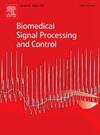多路径异构神经网络:新型面神经功能综合分类方法
IF 4.9
2区 医学
Q1 ENGINEERING, BIOMEDICAL
引用次数: 0
摘要
本文介绍了面神经分级系统的系统分类方法,该方法采用了一种开创性的多路径异构神经网络(MPHNN)方法,专为运动的精确分类而设计。它集成了四个不同的卷积神经网络(CNN)和自定义前馈神经网络(CFNN),以提高分类的精确度。CNN 专门用于仔细检查面部地标的坐标随时间的变化,从而捕捉运动时面部表情的空间信息和时间模式。CFNN 结合了患者的特定变量和运动统计数据,包括手术史、运动类型、持续时间等因素,以及每个地标的累积运动等合成特征。通过利用这一综合框架,所提出的方法能够细致入微地反映患者的运动表现,从而促进更精确的分类结果。本文章由计算机程序翻译,如有差异,请以英文原文为准。
Multi Path Heterogeneous Neural Networks: Novel comprehensive classification method of facial nerve function
This paper introduces a systematic classification of the facial nerve grading system using a comprehensive methodology using a pioneering Multi-Path Heterogeneous Neural Network (MPHNN) method designed for the accurate classification of exercise. It integrates four distinct Convolutional Neural Networks (CNNs) and Custom Feedforward Neural Networks (CFNNs) to enhance the precision of the classification. The CNNs are specifically tailored to scrutinize changes in the coordinates of facial landmarks over time, enabling the capture of both spatial information and temporal patterns in facial expressions during exercise. The CFNNs incorporate patient-specific variables and exercise statistics, including factors such as their surgical history, the type of exercise, its duration, and synthetic features like cumulative movement for each landmark. By leveraging this comprehensive framework, the proposed method offers a nuanced representation of the patient’s exercise performance, thereby facilitating more precise outcomes of a classification.
求助全文
通过发布文献求助,成功后即可免费获取论文全文。
去求助
来源期刊

Biomedical Signal Processing and Control
工程技术-工程:生物医学
CiteScore
9.80
自引率
13.70%
发文量
822
审稿时长
4 months
期刊介绍:
Biomedical Signal Processing and Control aims to provide a cross-disciplinary international forum for the interchange of information on research in the measurement and analysis of signals and images in clinical medicine and the biological sciences. Emphasis is placed on contributions dealing with the practical, applications-led research on the use of methods and devices in clinical diagnosis, patient monitoring and management.
Biomedical Signal Processing and Control reflects the main areas in which these methods are being used and developed at the interface of both engineering and clinical science. The scope of the journal is defined to include relevant review papers, technical notes, short communications and letters. Tutorial papers and special issues will also be published.
 求助内容:
求助内容: 应助结果提醒方式:
应助结果提醒方式:


